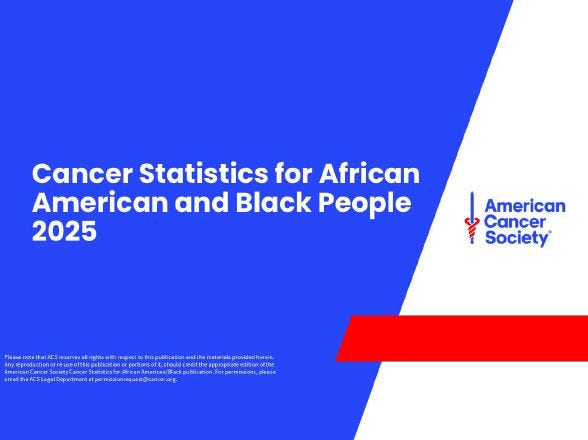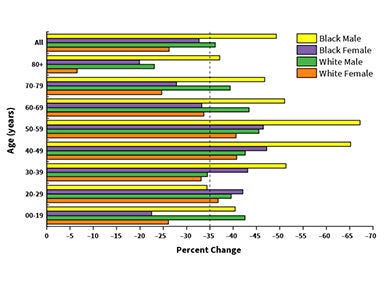Cancer Facts & Figures for African American/Black People
Cancer Statistics for African American and Black people, 2025, is a scientific article published in the American Cancer Society's flagship journal CA: A Cancer Journal for Clinicians in the Facts & Figures series. Fast Facts: Cancer in African American and Black People offers consumer-friendly highlights of some key statistics.
Black people have the highest death rate for many cancers, including breast and prostate, the two most common cancers in men and women.
Black women are 38% more likely to die from breast cancer than White women, despite slightly lower incidence rates.
Black people have lower survival than White people for almost every cancer type.
Glossary for Nonscientists
Featured Term:
African American/Black
People in the United States who can trace their lineage to Africa. Some Black people do not identify as African American. The Black lineage contains many histories, cultures, and experiences, including Afro-Caribbean and Afro-Latino populations.








